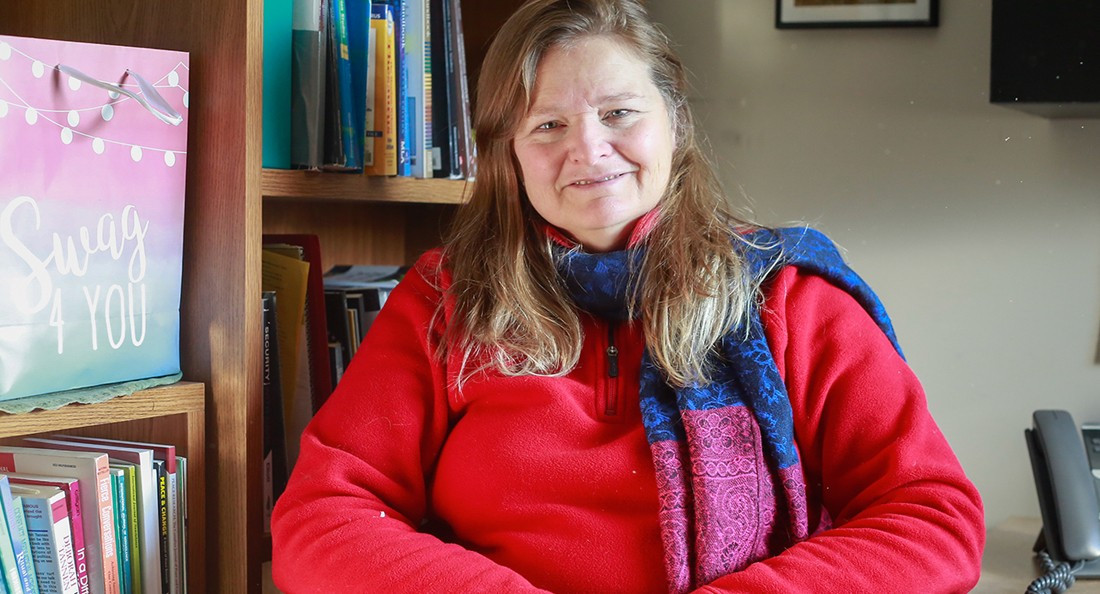PROFile: Karen Ridd
Instructor, Conflict Resolution Studies Program, Menno Simons College at U of W
For Karen Ridd, becoming an instructor for the Conflict Resolution Studies program at Menno Simons College was the result of an unexpected but adventurous journey.
“I completely came to it backwards.”
Initially drawn to the University of Winnipeg (U of W) for its basketball program, Ridd studied English with the intention of becoming a professor for the subject. Her plan changed after she began working as a professional clown and starting the therapeutic clowning program at Health Sciences Centre Children’s Hospital.
From there, Ridd travelled to Central America to do human rights work with Peace Brigades International. She did nonviolent accompaniment to protect those doing nonviolent resistance.
During this time, Ridd attended meetings where she was surrounded by organizations and individuals working for social change. An issue Ridd repeatedly noticed during the meetings was the way “micro-scale conflicts” distracted the individuals from focusing on the big picture and doing the “macro work.”
“So I thought ‘when I go back to North America, I want to learn some of these microskills.’”
After Ridd returned from Central America, she took conflict-resolution training, which eventually led to her coming back to the U of W as an instructor.
If you could have any superpower, what would it be?
“I’m going to be boring on that one ... I’m just feeling really heavily right now the fires in Australia due to climate change, and I’m feeling very heavily the weight of Trump okaying the assassination of (Qassem Soleimani) so my superpowers right now would be the ability to create world peace and the ability to wake us up around climate change.”
What is your favourite form of nonviolent resistance?
“I think there’s two types that I particularly find fascinating. One is when people incorporate humour in some form.
“The other ones that I find super moving are the ones that are rooted in spiritual tradition.”
What’s the best thing about your job?
“One best thing is absolutely the students. I just feel incredibly honoured and blessed to get to spend time with people who are passionate and interested in learning and eager.
“I have great colleagues, and the other thing is, I have a job where I get paid to read and learn and think. How lucky is that?”
Published in Volume 74, Number 14 of The Uniter (January 16, 2020)








